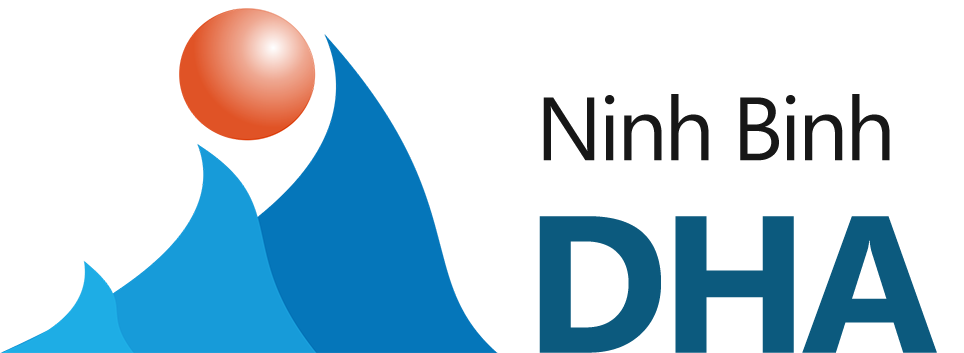
Measuring the powder coating thickness is a crucial aspect to verify the perfection of the layer. Experts revealed that the overall appearance and the performance of the finished product entirely depend on the thickness of the coat, which is technically called “Dry Film Thickness” – DFT. The powder coating thickness can affect impact resistance, adhesion, toughness, coverage (color, texture, finish surface), chipping resistance, weather resistance, and durability. Therefore, customers should pay attention to this issue when choosing electrostatic spraying service to avoid unwanted mistakes in the future.
To give you a better overview, Ninh Binh DHA would like to provide you with most basic information about international standards, units of measurement, thickness gauges as well as why you should measure powder coating thickness.
1. Units of measurement
Two normal standards of measuring powder coating thickness are the mil unit and the metric unit.
1ml = 1/1000 inch. This means that if the specified thickness is 3 to 4 mils, then the final cured powder coating’s thickness is between 0.003 and 0.004 of an inch.
The metric unit of measurement is the micron: 1mil = 25.4µ.
The standard film thickness for a standard powder coating for optimum mechanicals is between 60 and 80 microns (~2-3 mils).
2. International standard for powder coating thickness
The International Committee ASTM D01 on Paints and Related Coatings, Materials and Applications has undertaken the development of a separate standard for paint thicknesses, D 7378, which is under the authority of Subcommittee D01.51 on Powder Coating.
David Beamish, a member of Committee D01 shares that the condition of the finish can affect many physical properties and appearance of the product. The criteria for color, gloss, surface profile, adhesion, flexibility, impact resistance, hardness will also be affected. He also mentioned that this standard helps application systems to set up and adjust properly before processing, avoiding excessive powder coating.
Beamish noted that accurate predictions help avoid peeling and repainting, which lead to economic problems.
The standard covers the following three methods: strong impact, magnetic or ultrasonic detection. Two ways A (strong impact) and B (magnetic) for thickness measurement before curing and forming, while method C (ultrasonic detection) gives predictive values based on calibration of powder coatings.
3. Why it’s important to measure power coating thickness?
Coating thickness is an important variable that plays a role in product quality, process control and cost control..
The thickness of the powder coating can affect impact resistance, flexibility, hardness, coverage, chipping resistance, weather resistance, salt spray resistance and durability.
Manufacturers will provide a specifications sheet for powder coating. The powder coating machines will apply a uniform coating that meets the specifications in the table. The technicians will apply the thickness measurements for coated substances, thereby adjusting it to follow required parameters.
More importantly, coatings are intended to perform at their best when applied within the narrow thickness range specified by the manufacturer. This is to ensure product optimization during production. Thickness greatly affects coating properties as described above.
Pieces assembled after coating can be affected by the thickness of the paint film, causing them to not fit together anymore. Therefore, the minimum film thickness of coatings must be machined precisely as required specifications.
The D7378 standard has brought many benefits to industries using powder coatings:
- The automotive industry uses powder coating on wheels, rims, trim trims, and many engine parts.
- Structures that use powder coating on buildings have superior finishes which are more durable and sturdy.
- Everyday products such as golf clubs, racks, lawn mowers, garden tools and metal toys enjoy long-term economic benefits.
>>> See more: What is powder coating and how it brings benefits?
4. How to measure powder coating thickness?
Measurement for powder coating thickness can be conducted with many instruments, either before or after curing. Having a deep understanding of those equipment and how to use it appropriately will be very helpful to control powder coating quality.
Measuring film thickness before cure may require the need of immediate correction and adjustment. Instruments for uncured powders are powder combs and with magnetic gauges employing special powder probes, However, this technique is destructive as it will reduce the powder coating. Ultrasonic instruments also are used to measure uncured powder without touching the surface, and automatically show a predicted cured thickness result and easily remove the extra powder if the coat exceeds specifications.
For after-cure measurement, various hand held instruments, which are non-destructive, can be used depending on the substrate. They are either magnetic, eddy current or ultrasonic principles. In addition, there are some other less common measurement methods available such as micrometer cross-sectioning, and gravimetric (mass).
Below are some widely used instruments for coating thickness measurement.
a/ Ultrasonic Material Thickness Gauges

b/ Magnetic Coating Thickness Gauge

d/ Ultrasonic Thickness Gauge

e/ Digital Thickness Gauge

In summary, measuring powder coating thickness is vital and must not be neglected. To make sure your product’s substance looks seamless, sleek, and stands out from others, it’s important to find a high quality powder coating service provider. If you find the wrong direction, you may waste money to recoat products. Ninh Binh DHA must be the one you are looking for. We use the most advanced techniques and have excellent coat specifiers, thickness inspectors, and technicians and promise to serve you the best service. If you’re interested in our service or products, contact us now to have more discussion by Phone: 0869651843 – 0866597153
